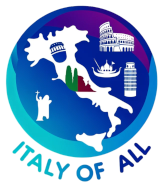The province of Palermo, located on the northern coast of Sicily, Italy, is renowned for its rich historical heritage, vibrant cultural life, and diverse natural landscapes. As the regional capital, the city of Palermo itself is a bustling urban center known for its architectural marvels, bustling markets, and as a melting pot of various cultures that have influenced its development over centuries.
Geographically, the province of Palermo features a varied landscape that includes rugged mountains, rolling hills, and extensive coastline along the Tyrrhenian Sea. The area is characterized by scenic beauty ranging from the cliffs and coves of the coastal areas to the green expanses of the Madonie and the Nebrodi mountains in the interior, which are popular for hiking and outdoor recreation.
Historically, Palermo has been a significant cultural and economic hub since antiquity, influenced by Phoenicians, Romans, Byzantines, Arabs, Normans, and Spaniards, among others. This rich history is evident in the city’s architecture, including the Palermo Cathedral, the Norman Palace with its Palatine Chapel, and the historic markets like Ballarò and Vucciria that echo the city’s Arab heritage.
Culturally, Palermo is a vibrant center of art, music, and tradition, renowned for its festivals, theaters, and museums. The city hosts numerous events throughout the year, including the Feast of Saint Rosalia, Palermo’s patron saint, which features a grand procession and festivities attracting thousands of visitors. The Teatro Massimo, one of the largest opera houses in Europe, is a hub for performing arts, showcasing Italy’s rich operatic tradition.
Cuisine in Palermo reflects its multicultural history, with influences from Arabic, Spanish, and local Sicilian traditions. Signature dishes include “arancini” (fried rice balls), “panelle” (chickpea fritters), and “caponata,” a sweet and sour eggplant dish. Seafood is also prominent, with “pasta con le sarde” (pasta with sardines) being a local favorite. Street food plays an integral role in Palermo’s culinary scene, with local markets offering a variety of treats that capture the essence of Sicilian gastronomy.
Economically, Palermo’s economy is diversified, encompassing sectors such as services, tourism, agriculture, and manufacturing. The city’s port plays a crucial role in commerce, serving as a key maritime gateway for trade within the Mediterranean. Tourism is particularly significant, driven by Palermo’s historical sites, cultural festivals, and culinary reputation. Efforts to promote sustainable tourism and cultural heritage projects are ongoing to enhance economic growth and community development.
Despite challenges such as urban development and the preservation of historical sites, Palermo is actively engaged in initiatives aimed at enhancing urban livability and promoting cultural and environmental sustainability.
Overall, the province of Palermo offers a compelling mix of history, culture, and natural beauty. Its ongoing commitment to preserving its rich heritage and promoting sustainable development ensures its continued importance as a vibrant and dynamic region in Sicily and Italy.
Comuni in Palermo Province:
- Alia
- Bisacquino
- Alimena
- Altavilla Milicia
- Aliminusa
- Balestrate
- Altofonte
- Borgetto
- Bolognetta
- Belmonte Mezzagno
- Bagheria
- Bompietro
- Blufi
- Baucina
- Castronovo di Sicilia
- Castelbuono
- Campofiorito
- Castellana Sicula
- Carini
- Capaci
- Camporeale
- Casteldaccia
- Campofelice di Roccella
- Caltavuturo
- Collesano
- Cefalù
- Chiusa Sclafani
- Cefalà Diana
- Ficarazzi
- Contessa Entellina
- Ciminna
- Cerda
- Cinisi
- Isola delle Femmine
- Isnello
- Godrano
- Gratteri
- Lercara Friddi
- Geraci Siculo
- Giardinello
- Lascari
- ** Gangi
- Marineo
- Montelepre
- Misilmeri
- Partinico
- Monreale
- Palermo
- Montemaggiore Belsito
- Mezzojuso
- Palazzo Adriano
- Prizzi
- San Cipirello
- Petralia Sottana
- Pollina
- Piana degli Albanesi
- Roccapalumba
- Petina Petralia Soprana
- Roccamena
- Polizzi Generosa
- Santa Cristina Gela
- San Mauro Castelverde
- San Giuseppe Jato
- Santa Flavia
- Sclafani Bagni
- ** Trabia
- Valledolmo
- Ventimiglia di Sicilia
- Vicari
- ** Torretta
- Villabate
- Ustica
- Termini Imerese
- Terrasini
- Villafrati
- Trappeto
